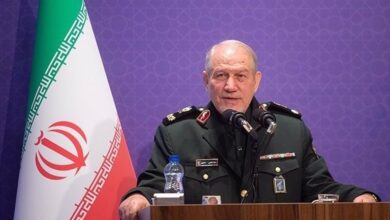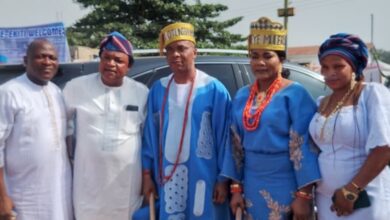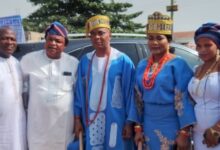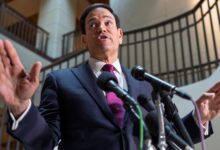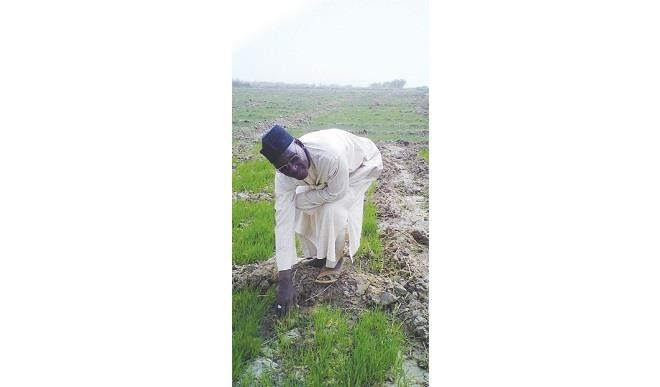
Many successive Nigerian governments have been affected by political instability or lack of continuity on policies and programmes. Some governments scrap inherited policies and establish new ones for one reason or the other, while others stick to previous ones. For example, the General Yakubu Gowon administration established the National Accelerated Food Production Programme and the Nigerian Agricultural and Co-operative Bank, (NACB), in 1972. The General Murtala Mohammed/Olusegun Obasanjo regime established the Operation Feed the Nation (OFN) in 1976 to teach rural farmers how to use modern farming tools. In 1979, the civilian administration of Alhaji Shehu Shagari established the Green Revolution Programme to reduce food importation and increase local food production.
In 1984, General Muhammadu Buhari established Back to the Land. In 1986, General Ibrahim Babangida established the Directorate of Food, Road, and Rural Infrastructure (DFRRI), and in 1993 the same government established the Family Support Programme (PSF), the Family Economic Advancement Programme (FEAP), and in 2001 National Poverty Eradication Programme (NAPEP) to replace the Poverty Alleviation Programme. General Sani Abacha popularized the National Agricultural Land Development Authority (NALDA) saddled with the responsibility of clearing more farm land for farming.
The late President Umaru Musa Yar’Adua had the seven point agenda with agriculture as one of the priorities. The immediate past President, Dr. Goodluck Jonathan had the Rice Transformation Agenda (RTA), and President Muhammadu Buhari introduced the Buhari Rice Revolution (BRR) in Kebbi State. The bumper harvest and sensitization of the populace led to the branding of the rice as Lagos and Kebbi LAKE Rice.
According to the Chief Executive officer, (CEO) of Safari 54 in Kaduna, and a farmer, Mr. Shedrack Madlion, “The elites living in the cities are going back to farming because, for any nation to meet its aspiration, it needs to eat what it grows and grow what it eats. The over 175 million people must begin to look inward. God has given us a new and good leader who is waking up a sleeping giant to its responsibility. The elites have realized that today you might build a big fence around your house, but cannot stop any hungry man from coming into your compound or command him.”
He continued that from all economic indices, nothing is more profitable as food and drugs. “But you cannot sell drugs until you have eaten food. I think our leaders are waking up to their responsibility considering the wonderful synergy between Lagos and Kebbi that led to the branding of LAKE Rice,” Madlion said.
Madlion further said he hopes to see the same collaboration between Kaduna and Oyo states on ginger, Taraba and Lagos states on Egusi and yam, Lagos and Enugu or Anambra on yam. Madlion said that was what Sardauna did without the GSM telephone or internet. “The school fees of the leaders we have today was paid from the farm and they never gave back to the society,” he said.
Reports show that Nigeria has an annual expenditure of $11 billion on food importation, with rice alone constituting about N365 billion ($2.4 billion or one-fifth of total annual food import bill) annually, meaning that nearly N1 billion has been spent daily for rice importation for many years. Also, 264,000 hectares of farmland for dry season rice production can yield about 1.1 million metric tons of rice within five months, keeping the farmers busy at a time of the year in which they usually are traditionally idle and putting more money into their pockets. Recently some have built a farm house for vacation with their family in their commercial farms. They go and spend some days there and teach their family how to manage a farm. Recently, Daily Trust visited the farm of the immediate former Nigerian president-who grew up in a riverine area and was a fisherman-where he is into various forms of farming near the Nnamdi Azikiwe International Airport, Abuja.
It is also no longer news that the current President Muhammadu Buhari is into crop farming and also deals with livestock in Daura. Even as President, he has been seen visiting the farm.
Many high-ranking retired and serving government officials, military personnel, politicians, legislatures among others are into farming within cities. Some of the farms are around the Federal Capital Territory (FCT) and situated between Baran-Gwani village along Bwari-Jere road where they mostly engage in fish and livestock farming. The owners have staff quarters, have the place fenced, security lighting systems and (some) even have Close Circuit Television Cameras (CCTV) that enable them monitor their farms from the comfort of their homes or even from any location around the world via internet wireless facilities.
A former minister who preferred anonymity said, “I grew up farming in the village and even in boarding school, but snubbed farming when I gained admission into the university. But when we went abroad, we realized that the rich people are the farmers. That is why when I came back to Nigeria, I bought a farm and went into full-time farming. I have rest of mind when I plant crops and see them growing. I make money from the produce, the stems, the livestock and even the manure. Everything is money in a modern farm.”
However, the first farm that Daily Trust observed that had a CCTV monitor is the one near the Kaduna International Airport. The cameras were installed at the peak of cases of cattle rustling where some of the rustlers were fully armed.
A farmer, Ibrahim Abdullahi (Kazaure) said he went back to farming because of the high cost of living, for the fact that he is a bread winner with a lot of responsibilities and for self-reliance. “I farm both for subsistence and commerce. I want to expand because farmers make huge profits in this season,” he noted. He called on the government to make adequate supply of agricultural inputs and equipment at subsidized rates, introduce farm management training Programmes, interest free loans to reduce poverty and rural-urban migration.
However, Yusuf Muhammad Isah, a civil servant said: “I embraced farming since I graduated from the university. I realized that it is not easy to secure a government paid job and my uncle introduced me to farming. I saw that he had food in his store through the year, while many who are more buoyant complain of the cost of feeding. Farming is the best alternative to poverty. It is a back-up. Even though I am currently farming on a small scale, I hope to expand when I have enough start-up capital.”
Isah also said he wants the government to buy produce from farmers directly at good prices, give accessible and affordable loans and provide an enabling environment.
Another farmer, Alhaji Lawal Sadik said he embraced farming and will continue farming by using both organic and manure fertilizer to get more yield. He added that it had solved the problem of feeding in his family. He called on the government to enhance farming by providing tractor hiring scheme and advised farmers to avoid encroaching on livestock path’s to avoid farmers and herders’ clash.
Meanwhile, a retired top army officer said he felt he had wasted so much time when he visited his village and saw that the people who were asking him for money have become employers of labour by fishing in their backyards. According to him, nobody should underestimate any mode of farming, as most of the people that are supposed to go back to the farms are now labourers in the city, while the so-called elites are now making good money from farming. He is now into full-time farming of crops and livestock.
Many of the small-scale farmers said they have made a huge profit from the produce they harvested due to the increase in demand for local farm produce. They said this has encouraged them to continue making more efforts to expand from subsistence to commercial farming. (Daily Trust)



